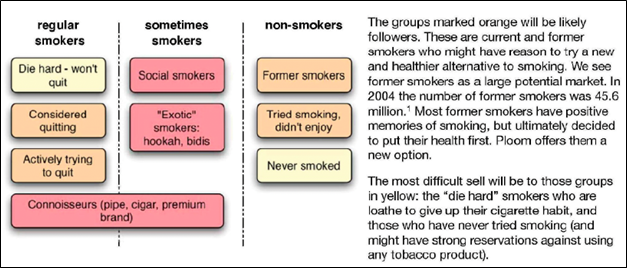Philip Morris and BAT both issued statements condemning ANVISA’s decision to maintain and strengthen e-cigarette regulations to keep the products (and other ENDS products) out of Brazil. Not surprisingly, they use the same generic arguments Big Tobacco uses against almost all regulations. The reality is that, as I noted in my post congratulating ANVISA, whileContinue reading “Surprise! PM and BAT condemn ANVISA decision to keep e-cigarettes out of Brazil”
Category Archives: vaping
Brazil strengthens its ban on ENDS, including e-cigarettes and heated tobacco products
On Friday, April 19, 2024, the board of ANVISA, the Brazilian Health Regulatory Agency strengthened its already-strong ban on electronic nicotine systems (ENDS), which includes e-cigarettes and heated tobacco products. In stark contrast to the US Biden Administration, which just caved to industry pressure and blocked the FDA’s well-conceived ban on menthol cigarettes and flavoredContinue reading “Brazil strengthens its ban on ENDS, including e-cigarettes and heated tobacco products”
Why does the Royal College of Physicians report on ecigs and harm reduction minimize knowledge of the adverse effects of nicotine beyond addiction?
E-cigarettes and Harm Reduction: An Evidence Review, the latest in a series of reports it has published since 2007 endorsing e-cigarettes for harm reduction. In this report, the RCP minimizes the adverse health effects of nicotine (beyond addiction), concluding that “There is little evidence of a long-term harmful physiological effect of nicotine that is notContinue reading “Why does the Royal College of Physicians report on ecigs and harm reduction minimize knowledge of the adverse effects of nicotine beyond addiction?”
Why is the Royal College of Physicians concluding the ecigs help smokers quit when a large body of evidence shows that, as consumer products, they don’t?
On April 18, 2024 the UK Royal College of Physicians published E-cigarettes and Harm Reduction: An Evidence Review, the latest in a series of reports it has published since 2007 endorsing e-cigarettes for harm reduction. In this report, the RCP recommends that “e-cigarettes should be promoted as an effective means of helping people who smokeContinue reading “Why is the Royal College of Physicians concluding the ecigs help smokers quit when a large body of evidence shows that, as consumer products, they don’t?”
Why is the Royal College of Physicians concluding e-cigs reduce harm while ignoring the substantial associations between e-cigs and actual disease?
On April 18, 2024 the UK Royal College of Physicians published E-cigarettes and Harm Reduction: An Evidence Review, the latest in a series of reports it has published since 2007 endorsing e-cigarettes for harm reduction. The report covers a wide range of topics, including assessing the health risks of e-cigarettes, the central question on whetherContinue reading “Why is the Royal College of Physicians concluding e-cigs reduce harm while ignoring the substantial associations between e-cigs and actual disease?”
Why is the FDA still pushing e-cigs as lower risk based on ancient evidence?
Today (April 16, 2024) the FDA released a new web page on The Relative Risks of Tobacco Products that irresponsibly promotes e-cigarettes as a lower risk alternative to cigarettes. This recommendation is based on the 2018 National Academy of Sciences, Engineering and Medicine report on e-cigarettes that concluded that e-cigarettes reduce exposure to some toxicContinue reading “Why is the FDA still pushing e-cigs as lower risk based on ancient evidence?”
More people are stopping smoking since advent of fourth gen e-cigs. Less disease? Probably not.
Karin Kasza and colleagues new well-done study, “Divergence in Cigarette Discontinuation Rates by Use of Electronic Nicotine Delivery Systems (ENDS): Longitudinal Findings From the United States PATH Study Waves 1-6,” uses the large national PATH study to see if there were differences in real-world trends of adults stopping smoking before and after fourth generation e-cigarettesContinue reading “More people are stopping smoking since advent of fourth gen e-cigs. Less disease? Probably not.”
Over 1 million previously secret Juul documents now available, with more to come
The UCSF Industry Documents Library released another 519,000 new Juul Labs documents, bringing the total number of documents to 1,053,233. This is about one-quarter of the complete collection of more than 4 million documents. Check out the Juul documents here.
NOW OPEN ACCESS: E-cigs have similar risks to cigs for some diseases and nearly as high for others. Dual use riskier than smoking alone
NEJM Evidence has graciously made our recent paper, “Population-Based Disease Odds for E-Cigarettes and Dual Use versus Cigarettes,” open access so that anyone can read and download it for free. As described in more detail in my blog post on the paper, it uses data from 107 population epidemiology studies of the association between e-cigaretteContinue reading “NOW OPEN ACCESS: E-cigs have similar risks to cigs for some diseases and nearly as high for others. Dual use riskier than smoking alone”
Contrary to public position, Juul founders wanted to attract former and non-smokers from the beginning
Juul co-founders Adam Monsees and James Bowen portray themselves as idealistic entrepreneurs committed to improving the health of billions of adult smokers with no intent to sell nicotine to non-smokers. Documents released as part of the settlement of North Carolina’s lawsuit against Juul, however, tells quite a different story. In particular, Monsees & Bowen’s 2006Continue reading “Contrary to public position, Juul founders wanted to attract former and non-smokers from the beginning”







